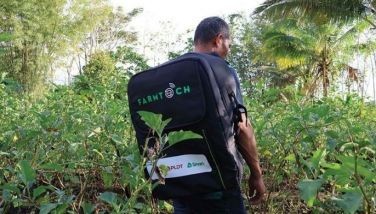Losses from investment scams hit P25 billion
MANILA, Philippines — Losses from investment scams have reached more than P25 billion as fraudsters have victimized one in every 100 Filipinos, according to Bangko Sentral ng Pilipinas Governor Benjamin Diokno.
In his keynote address during the opening of the five-day 2021 Financial Education Stakeholders Expo, Diokno said that the Philippines lagged behind other countries in financial literacy, as Filipino adults were able to answer only three out of seven financial literacy questions based on a survey conducted by the World Bank.
“Filipinos lagged behind other countries in similar surveys, scoring low marks in inflation, interest computation, and simple division,” the BSP chief said.
Based on the Financial Literacy Survey 2015 held by S&P, only 25 percent of total adult population in the Philippines are financially literate versus the world average of 33 percent.
The Philippines is lower than Singapore’s 59 percent, Myanmar’s 52 percent, Malaysia’s 36 percent, Indonesia’s 32 percent, and Thailand’s 27 percent, but higher than Vietnam’s 23 percent and Cambodia’s 18 percent.
“Poor performance in financial literacy surveys is echoed by data on how Filipinos use financial services,” Diokno said.
According to the BSP financial inclusion dashboard for the fourth quarter of 2020, five in 10 Filipino adults keep their savings at home and obtain credit from informal lenders, making them more vulnerable to onerous lending schemes.
“These experiences tell us that there is still a long way to go. Many Filipinos are still delaying saving, mismanaging credit, bypassing legitimate investment opportunities, or falling victim to investment scams,” the BSP chief said.
The central bank, according to Diokno, is implementing a three-part approach to develop resilience-building financial habits for Filipinos, including developing strategic financial education partnerships and executing capacity-building programs, making digital literacy more accessible, as well as developing targeted content in various formats and simplifying financial literacy and economic concepts.
The BSP has partnered with the Department of Education (DepEd) to integrate financial education in the K-12 basic education system, as well as various government agencies, including Civil Service Commission, Armed Forces of the Philippines, Philippine National Police, Overseas Workers Welfare Administration, Department of Social Welfare and Development among others.
These partnerships aim to reach 29 million learners, 800,000 teachers, 2.3 million OFWs and 14 million Filipinos abroad, one million civil servants, 1.9 million fisherfolks, 10 million 4Ps beneficiaries, 1.4 million micro, small and medium enterprises (MSMEs), as well as 140,000 soldiers, 220,000 police forces and 28,000 fire fighters.
The regular aims to convert 50 percent of total retail payments in the country to digital channels and have seven out of 10 Filipino adults in possession of a formal transaction accounts by 2023 under its Digital Payments Transformation Roadmap.
“As a regulator, our responsibility is to support the development of adequate, safe, and accessible digital payment streams, digital financial infrastructures and digital literacy programs for consumers,” he said.
With the massive shift to digital channels requiring vigilance on the part of financial consumers, Diokno said the BSP has implemented digital literacy campaigns and embeds cyber-hygiene lessons in our financial education training programs.
“Our key objectives include protecting financial consumers from various online threats and cyber risks, building trust in the digital finance ecosystem, and increasing uptake of digital financial services,” Diokno said.
- Latest
- Trending



























